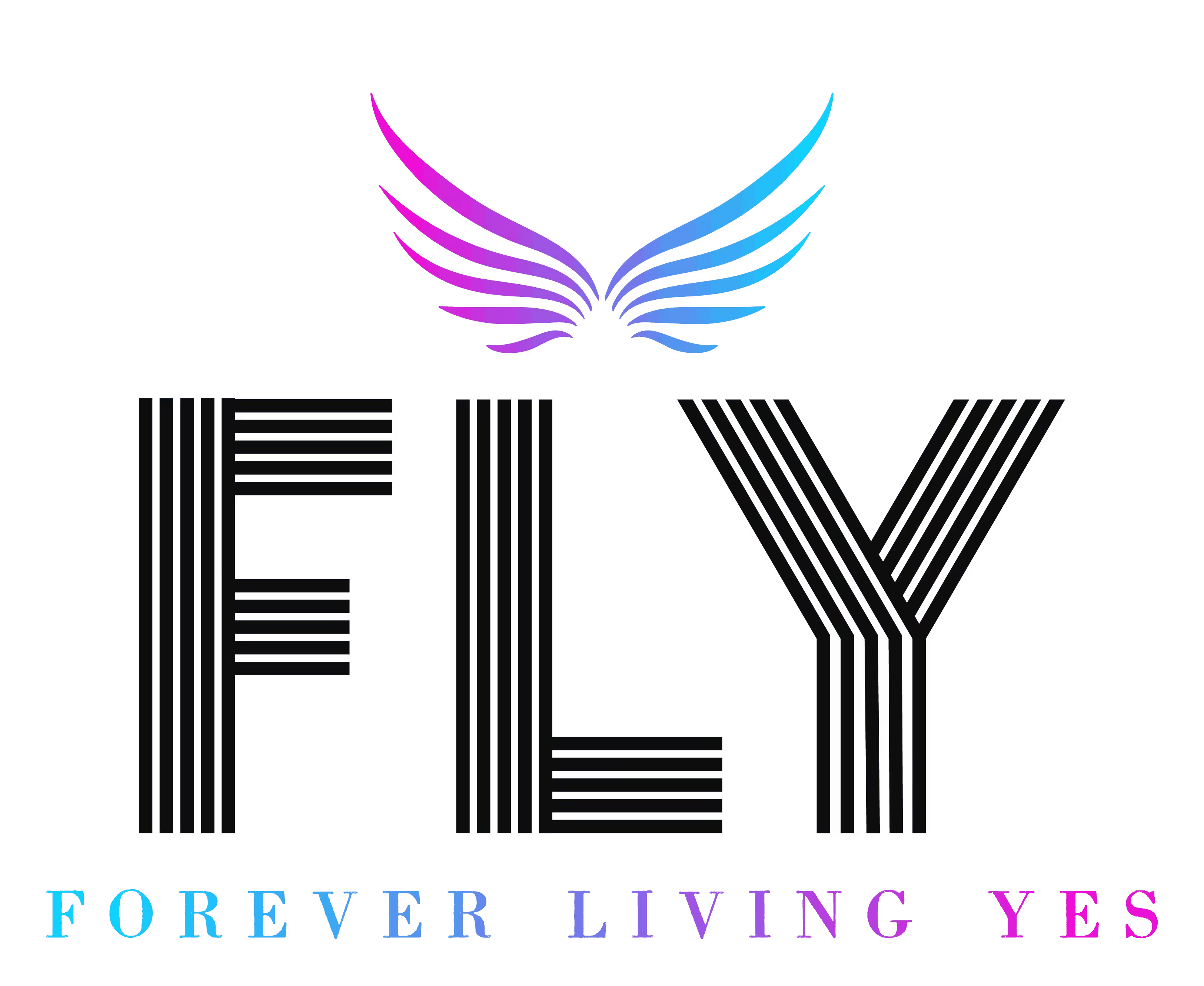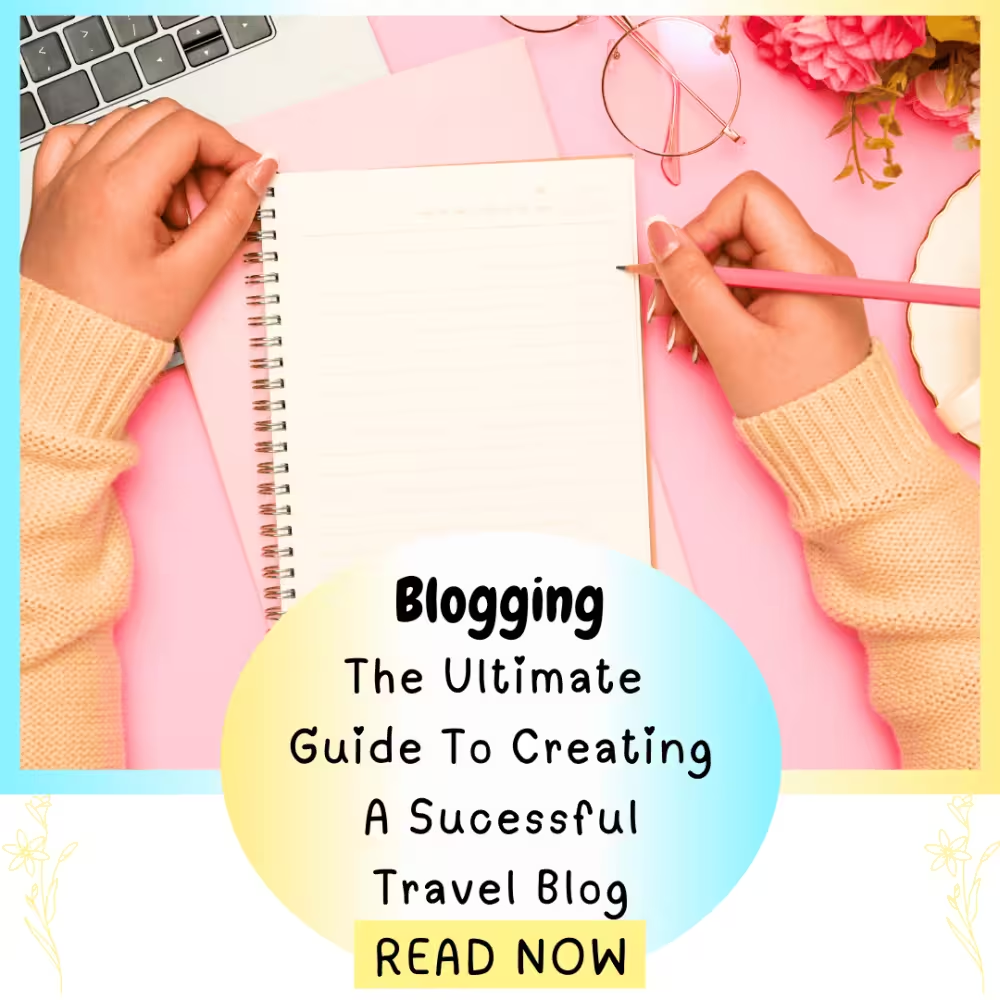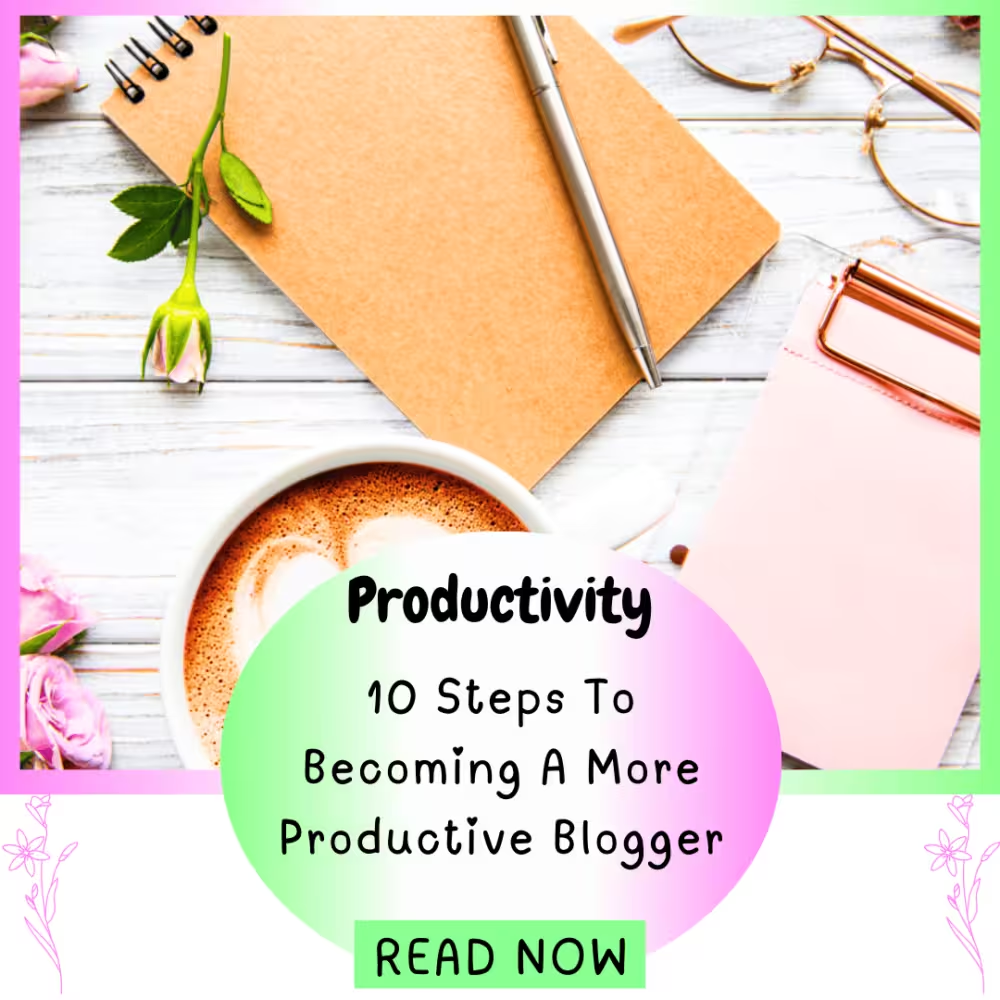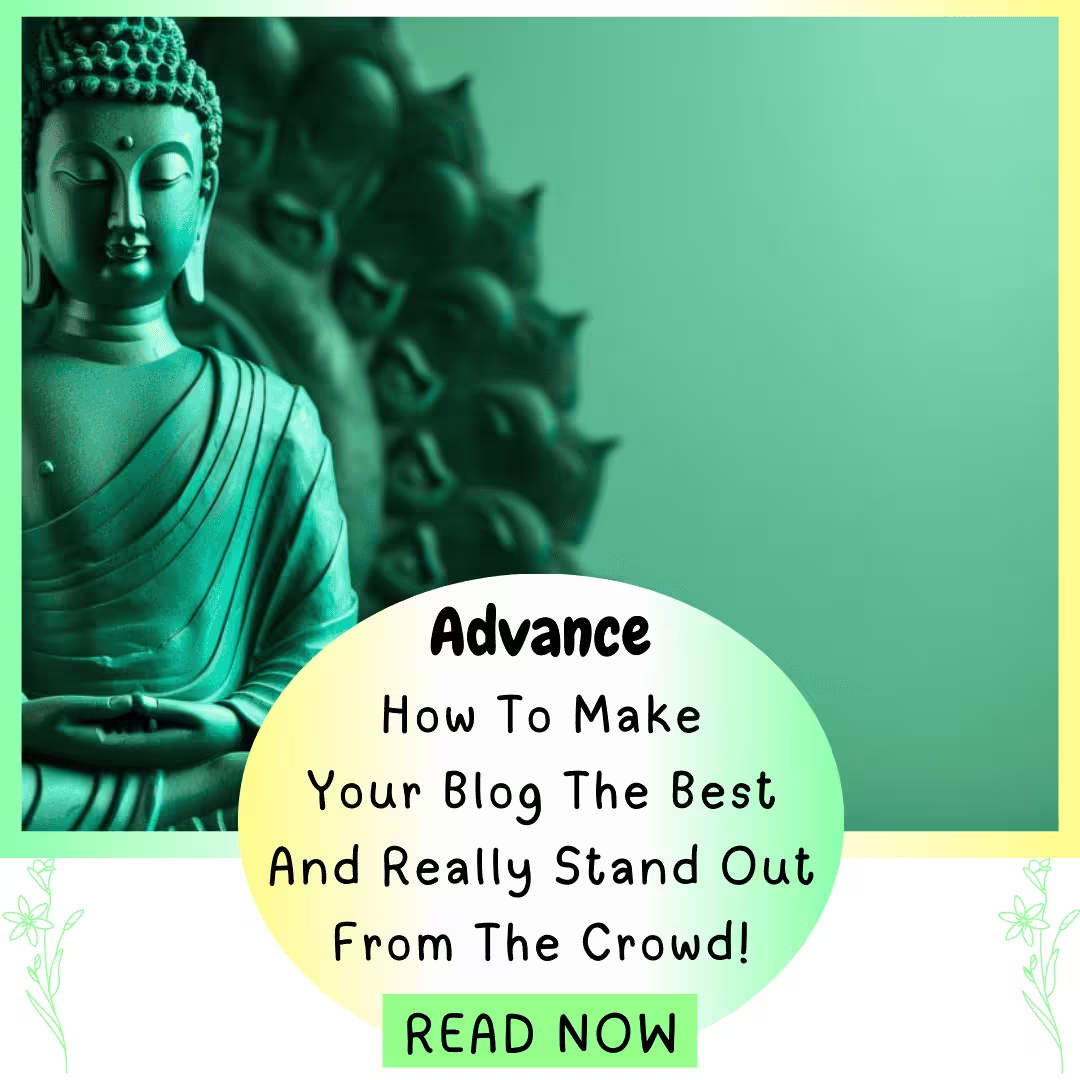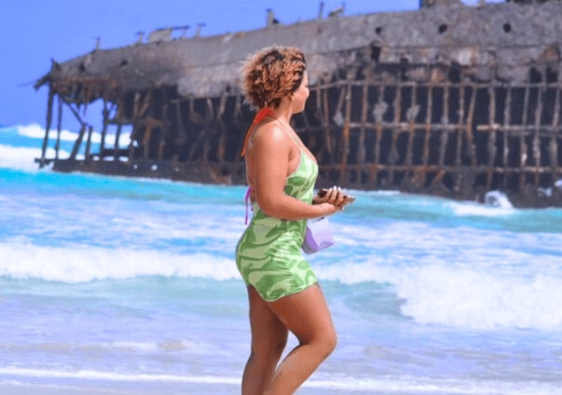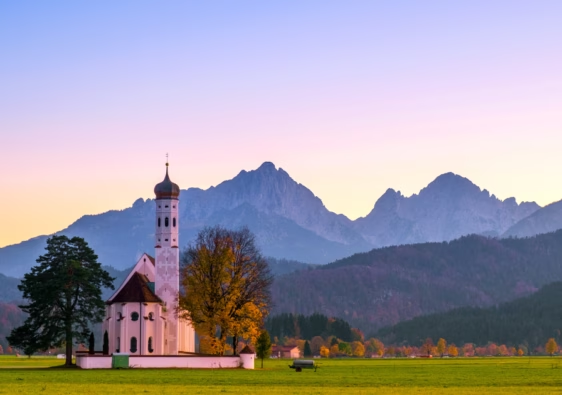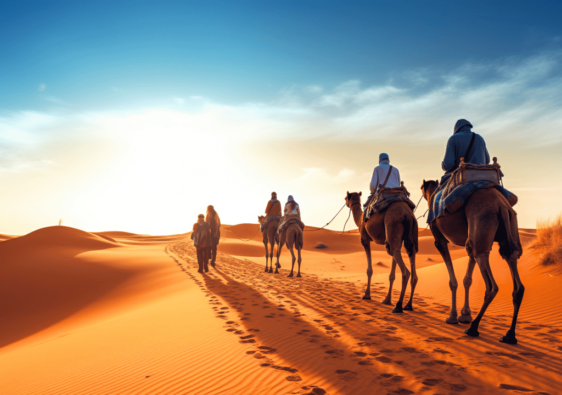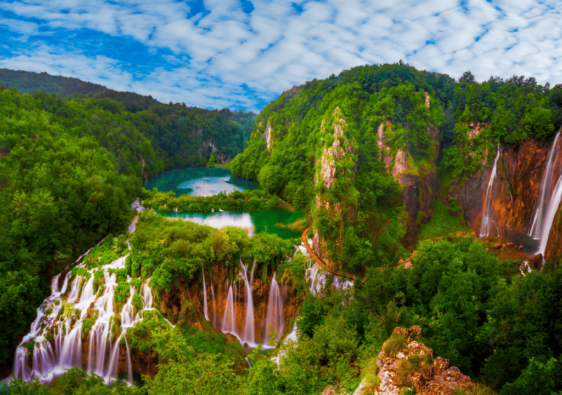Working Smarter, Not Harder!
Beginning my travel blogging journey has been the most fascinating and craziest thing I’ve ever done. When I was super new to blogging, I didn’t know where to start, but as I progressed, I realised just how far I’ve come.
As I travel extensively, have lived in numerous countries, and am always asked questions about my travels, starting a travel blog was a no-brainer. I looked around at a few travel blogs and thought I could do that, but better. So, I did my research and set on my way.
Little did I know that while blogging might be an ‘easy idea’, the workload certainly is not. From the beginning, I knew I wanted my website to be my full-time income eventually. So, I put in the work and assumed shortly after launching, I’d be making the big bucks; it’s gonna be wild! Haha. It turns out there’s a lot more than meets the eye.
I spent two years on and off working on my website before it launched in 2024. Since then, I have learned many new things that I needed to adjust (and am still learning), which took another six months.I wish I had known these nine beginner blogger tips from the start. They would have saved me time—the most valuable thing in the world—and helped me build faster.
Also, read Beginners Guide To Starting A Succesful Travel Blog In 2024.
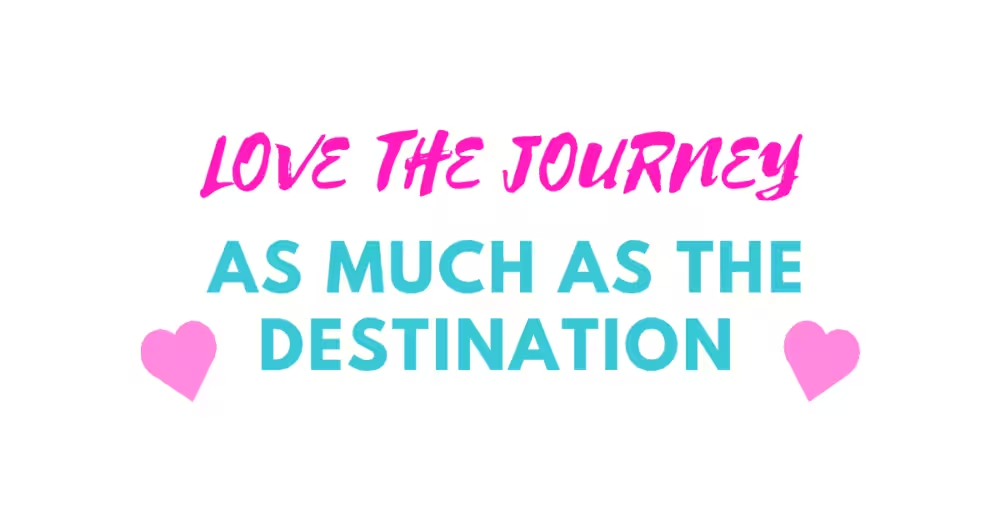
Quick Links
- You Only Need The Basics To Begin
- When To Launch Your New Site
- Basic SEO: Setting Up Correctly From The Start
- Analytics & Tracking Your Progress
- Building An Email List From Early!
- Monetization Tips For Bloggers & Expectations
- The Importance Of Resources & Tools
- Productivity Over Perfection & Taking It Step-By-Step
- The Investment & Commitment
Disclaimer: This blog contains affiliate links. If you purchase any cool products or experiences through these links, I may earn a little something as a thank you. There is no extra cost to you, promise!
You Only Need The Basics To Begin
So, my first reflection on things I wish I had known when I was new to blogging is that you only need the basics to begin. When I started my blogging journey, I overwhelmed myself with information and 90-hour-a-week courses and thought I needed to know EVERYTHING before I started.
I spent two months learning courses on SEO (search engine optimisation), backlinking, inbound and outbound marketing, social media courses, and more, which was great but perhaps unnecessary for the start. Building a high-quality site takes a lot of learning and resources, but you only need the basics to begin your journey.
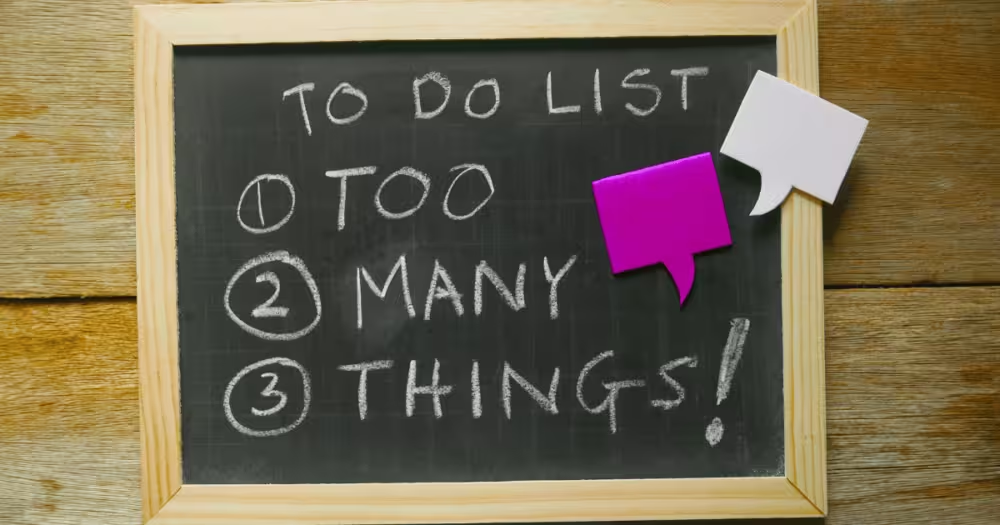
Keep your list of things to do short!
Basic Blogging Tools You’ll NEED
Domain & Webhosting: A domain is your website’s URL, like foreverlivingyes.com. Web hosting is like renting space on the Internet where your website will live. For example, I registered my URL and hosted my website through GoDaddy and paid a recurring annual hosting fee.
Setting up your blog: WordPress.org is the popular choice among writers. It’s free, trustworthy, and a reputable source to write from—it’s what I swear by and suggest. Just make sure you choose WordPress.org over WordPress.com because, with .org, you can host your site yourself, whereas with .com, you won’t be able to.
Theme Plugin: A theme plugin is a template that creates the visual base of your website. Many free or paid themes are typically priced between £20 to £70. While there are free options, a premium theme is a worthy investment. After deleting my website six times, I opted for Blossoms Theme Pro. It was game-changing for me; it had video tutorials, templates and pre-made widgets for a travel website, making it easier to build my website.
Images: You want images featuring you and your travels. It doesn’t have to be your face (except for the author’s bio), but having images of you/your face is more personal and will help you connect with your audience. If you’re new to blogging, you may need to build up your media collection, so consider purchasing stock photos from places like Adobe Stock.
Logo: This will be used across your website, so ensure it’s a logo/brand representing you. I purchased my logo and brand kit from Looka and registered Forever Living Yes as a private limited company with the government, as I plan on doing something major with this FLY name in the future.
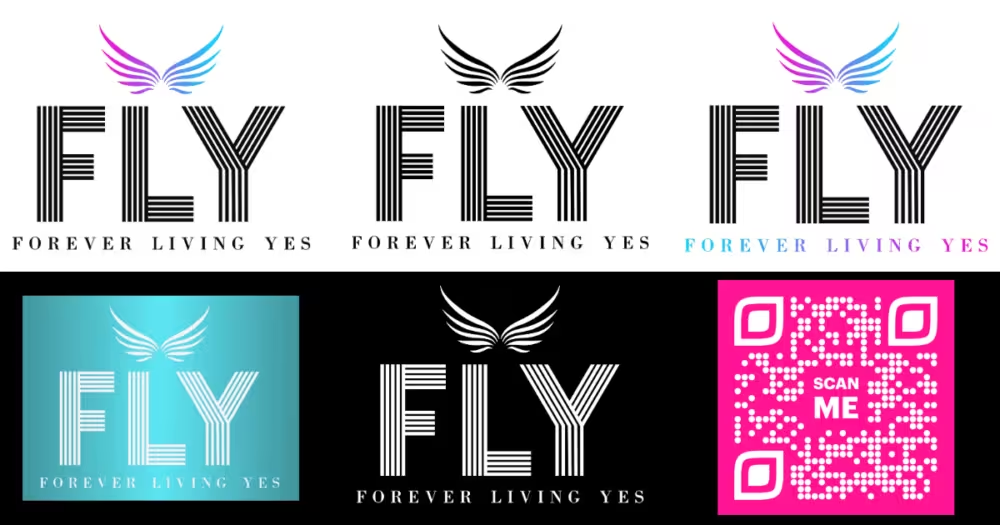
Experimenting with my logo on Looka
When To Launch Your New Site
When I started my blogging journey, I Googled, ‘When should I publish my travel blog?’. The truth is, there’s no real right or wrong; it’s just when you’re ready. However, my ‘ready’ was nearly two years after beginning my journey, and I wish I had known that it’ll always be a work in progress and that I should have published sooner.
Why? Because websites take time to build and rank. When I launched, I wanted 40 blog posts so people could click around and be amazed at all the work I had put into it. The thing is, I messed up with that. Looking back, it’s a year wasted of organic traffic growth, which I could have had while building my site.
Also, publishing your blog early will allow feedback while you continue practising what content works. Google also likes active websites with frequent updates, including revamping blogs. You won’t have an instant large audience anyway; it takes time, so the sooner you launch, the sooner you can build up your audience.
So, when’s the best time to launch your travel website? Although you can launch as early as your first blog post, I recommend having at least 5-10 blogs ready. You want people to click around at least a few pages, plus your page won’t feel so empty.
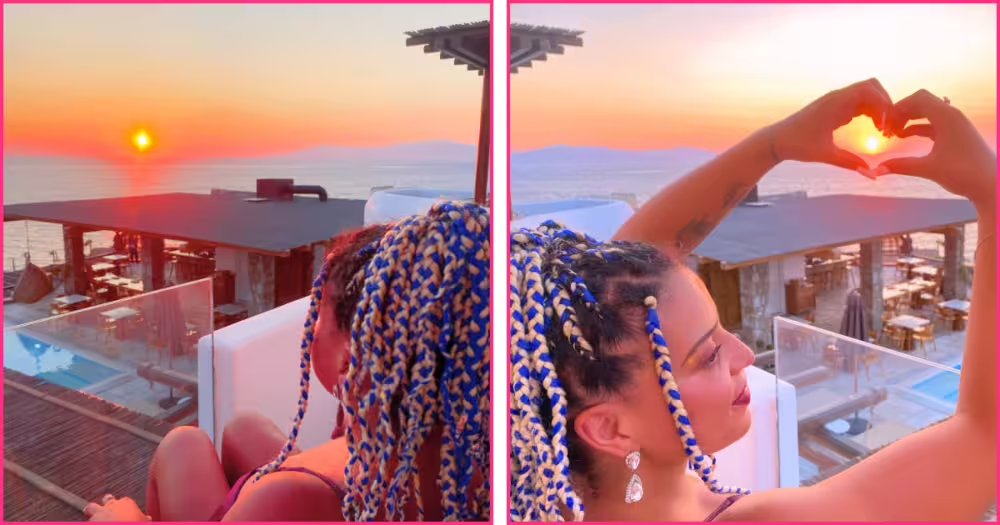
Basic SEO: Setting Up Correctly From The Start
SEO can seem scary, especially when you are new to blogging. That’s because it is a very complex subject. I’ve done numerous courses in it, and I’m still getting my head around it. SEO is not a set-it-and-forget-it type of action, either. It’s forever changing and updating as the algorithms change.
However, there are some excellent SEO tips to practice from the very start of your travel blogging journey. These tips will unlikely change in the foreseeable future and will save you time later.
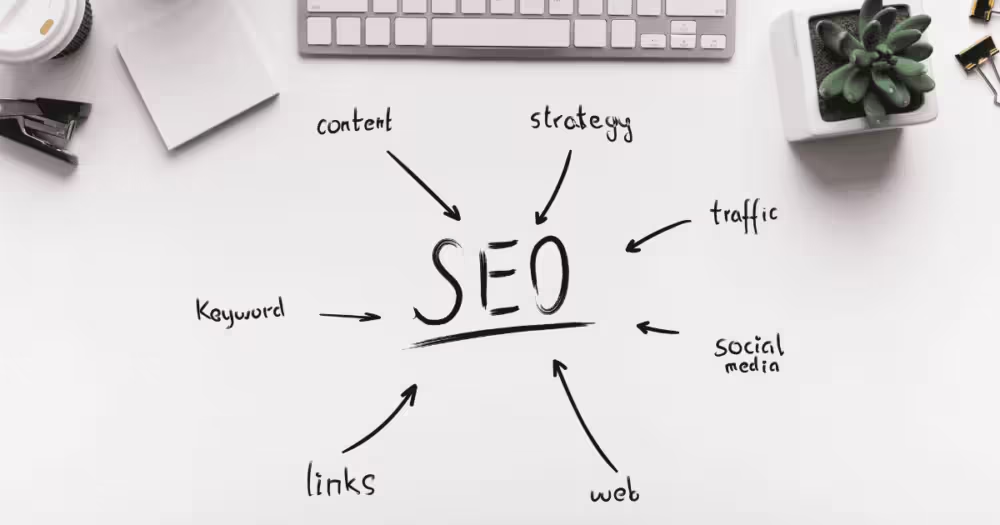
Start with the basics of building an SEO strategy
The Basic SEO
Keywords: Using at least one keyword per blog will help Google determine your blog’s subject. You can also add more keywords, but try not to overdo it. If you overstuff your blog with keywords, known as ‘keyword stuffing,’ your blog will appear unnatural, and Google may penalise you, making your website harder to find. However, I’m no keyword expert. As I’m still new to this important SEO subject, check out Ahrefs’ blog for professional advice.
Optimising Images: Compressing your images with tools like ShortPixel is super important. Compressing and optimising your images helps save storage space on your website and can help keep your SEO score undamaged. You can easily install Shortpixel as a WordPress plugin, making your life much easier!
Internal & External Linking: To help build your website, naturally include recommendations for your other posts in some links. It’s also recommended to link to other high-quality sources that serve your audience. For example, If I write about websites that offer tour groups for solo travellers, I would link to a trusted company like Contiki. Getting used to doing this might take a while when you’re new to blogging, but you’ll gradually catch on.
Alt Text: When you upload a picture, you’ll see an option to add title, header, description and alt text. Alt text is a description of the image you’ve uploaded, making it accessible for people with disability. It is also helpful with discovery, as people can find your site through images, which can hurt your SEO without alt text. Think of the alt description as if you are describing a painting.
Many key SEO optimization tools come as an all-in-one plugin, like AISEO, which is free to install on your WordPress. It gives you recommendations on how to improve your blog before publishing.
Analytics & Tracking Your Progress
I wish I had known how important it was to track your data from the beginning. Tracking these analytics helps you understand your audience—it’s numbers feedback. Data like seeing how many sessions you get, how your visitors discover you, and your bounce rate (people who don’t engage once they visit your site) is key to understanding how your website performs.
Without data, it is hard to know if your website is helpful for your readers and what content is engaging or needs improvements. You can use many different tracking tools, but for your beginner blogger journey, I recommend a few key platforms from the very start: Google Analytics, Site Kit, and Ahrefs.
Google Analytics + Site Kit
Google Analytics (GA) and Site Kit by Google are free tools designed to help website owners monitor, analyze, and improve their performance. GA provides in-depth metrics on website traffic, user behaviour, and demographics.
On the other hand, Site Kit by Google is a WordPress plugin that integrates Google services (like Google Analytics, Search Console, Adsense, and PageSpeed Insights) directly to your WordPress dashboard. It provides a simplified view of key performance data, like search traffic, page performance, and ad earnings.
Together, these tools give a comprehensive overview of a site’s traffic, SEO performance, and user engagement, helping you to optimize content and marketing strategies based on real data.
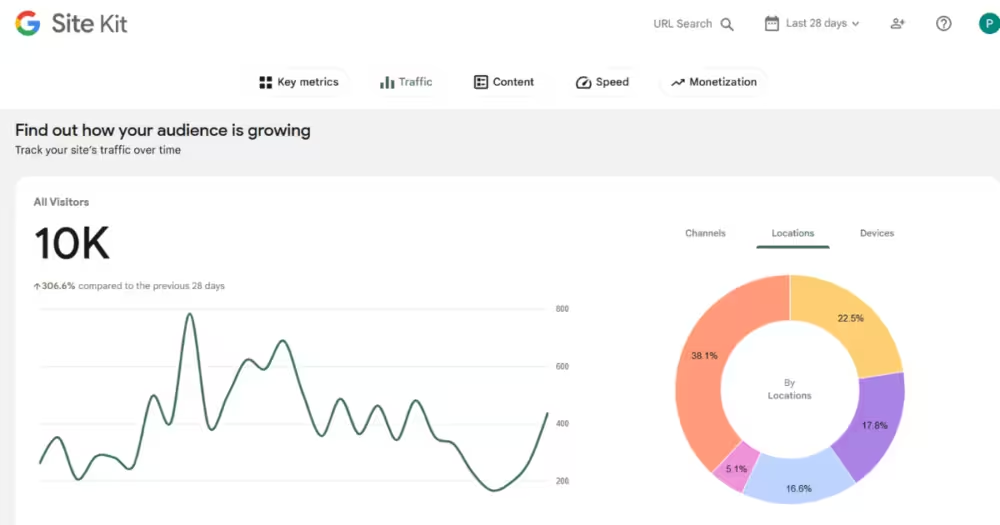
Google Site Kit is great for tracking data
Ahrefs
Ahrefs is a free, all-in-one SEO toolset that helps users improve their website’s search engine rankings. It offers features for keyword research, site audits, content exploration, rank tracking, and backlink analysis, which are handy for analyzing your site.
Ahrefs’ extensive backlink database and keyword tools also allow users to understand competitors’ strategies, identify high-value keywords, and find content ideas. It’s widely used by digital marketers, SEO specialists, and content creators to enhance organic traffic and optimize websites for search engine visibility.
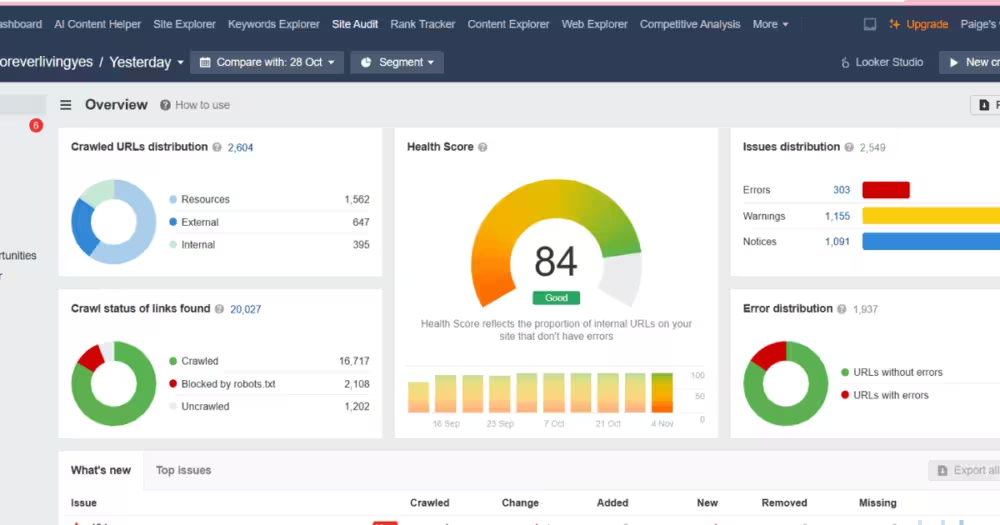
Ahrefs is great for analysing in-depth data about your website
Building An Email List From Early!
I wish I had realised how important it is to build an email list from scratch! Although I knew an email list was a favourable asset, I didn’t realise just how beneficial it could be. I’m disappointed I didn’t initially feature an effective newsletter sign-up form.
Why is an email list important? Having subscribers is GOLD. Those subscribers are your audience, people you already know who love your website (otherwise, they wouldn’t have signed up) and are 100% your ideal client. Think how many subscribers may return to your site when you send a weekly, bi-weekly, or monthly newsletter.
Also, if you plan to offer services and products, who better than to advertise to your own ‘fan base’? You can nurture relationships, inspire others, and make a really sweet profit from it. So don’t be like me and sleep on it; you’ll regret not doing it from the start! And whilst we are at it, feel free to sign up for my email list for some newsletter inspo <3
Monetization Tips For Bloggers & Expectations
Now, let’s talk about something we all love: money. Of course, I wish I had known more about monetization from early. I only understood the bare minimum and did not take advantage of this avenue initially.
The potential to earn an attractive, lucrative reward for our hard work is exciting. I made my first commission six months after going live with my website. I’ll never forget the moment. Since that first commission, it’s been on a steady rise, and I’m still yet to utilize all the revue avenues. If I had known it would take a while, I wouldn’t have lowered my expectations to avoid disappointment.
I focus primarily on affiliate marketing, which involves recommending companies’ products or services without being ‘salesy’, and receiving a commission when a visitor clicks on their website or purchases a product.
When starting your travel blog, you may find signing up with affiliation programs slightly challenging. Some programs require minimal website live time (e.g. website live for 3 months) or traffic. However, some allow those new to blogging, so just have to look around.
In the following section, I’ll explain a few different methods for monetizing your travel blog as a beginner blogger.
Affiliate Programs For Beginners
TravelPayouts: I recommend TravelPayouts as my number one affiliate all-in-one program, made for those in the travel industry. They have over 60 partners, including some of the most popular travel brands, such as GetYourGuide, TripAdvisor, Booking.com, Viator, and more. Once your account is verified, you can apply and connect with these brands. Once accepted, you can recommend activities and services using your unique ID.
TIP: I highly recommend partnering up for TripAdvisor. Unlike most companies, which pay you when someone actually books a service, hotel, or activity, TripAdvisor pays a Cost-per-Click rate, meaning that when someone clicks on your link to their website. When the user engages (e.g. clicking through on the hotel link for more details), they will pay you a small percentage. I like this affiliate system because you get rewarded even if visitors don’t book.
CJAffiliate: Another good affiliate to use is CJAffiliate. With hundreds of companies to choose from in a wide range of industries, like Shein, Agoda Hotels, Virgin Atlantic, and more, it’s a great place to scout your favourite brands. The process is pretty simple, and they are another reputable program bloggers like to use.
Amazon Associates: This affiliate programme is one of the most popular ones. Amazon Associates makes signing up and creating links to your favourite products easy. This is great, especially when you’re new to blogging, as you can use it to recommend things like suitcases, battery packs, or any other items you love to use.
Awin: Another good monetizing program I signed up for was Awin. They have a cool range of partners, including LastMinute.com and Jet2Holidays. All the companies you sign up for have different conditions and rewards, so it’s great to sign up for various opportunities.
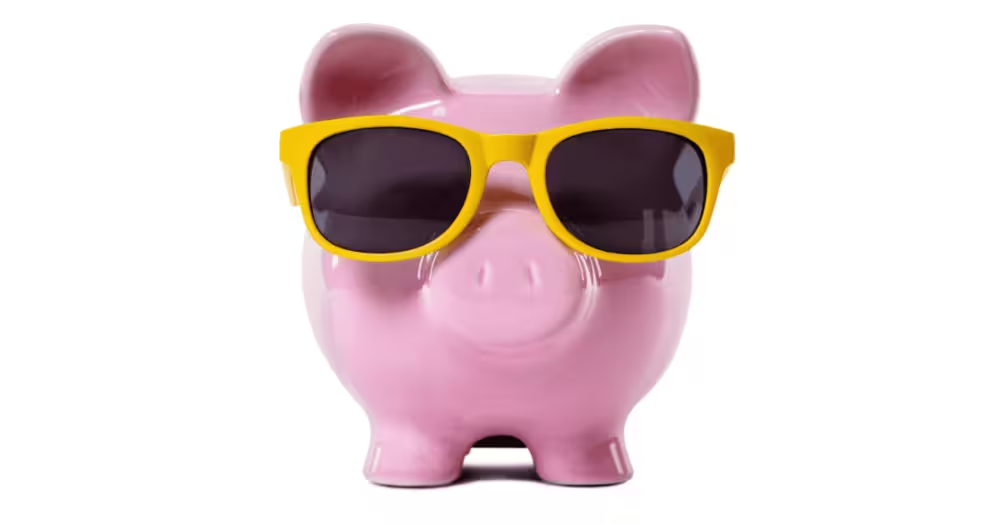
Affiliate partnerships are a good way to bring in some dollars
Paid Ads
Another way to monetize your blog is with paid ads. Many bloggers start with Google AdSense; however, other ad networks pay a higher reward, like the one I’m using, Journey.
Journey is a newer ad network on the market that has people talking. It accepts smaller bloggers with around 10,000 monthly sessions. However, I know bloggers who have been accepted with just 1,500 monthly sessions, so this is an excellent in-reach goal you can work towards. Signing up with Journey will give you high-quality ads and pay better rates than Google Adsense.
Journey also has a parent ad network, MediaVine. It’s the gold standard status of a great affiliate program and pays one of the highest commissions. The requirement is 50,000 sessions per month, so it will take a while, but that’s another big goal you can aim to reach.

A fake example of how a banner paid ad could look on your website. They come in different formats.
E-Books & Products
Selling e-commerce, such as e-books, is an excellent addition to your passive income strategy. I love this option as it relies more on your audience than a third-party source. Also, e-books are usually free to create, meaning if you tempt your readers to buy your e-book, you’ll receive a significant 100% gross profit! However, make sure the e-book is good, as you don’t want to lose your readers’ trust with anything bad quality, so take your time with it! I finally launched my ‘How To Travel Solo‘ ebook in December 2024 after spending months working on it.
Products are also the way to make a steady additional income. A ‘shop’ with products you think your readers will love is the best way forward for the big bucks. Building quality foundations will create longevity and success. Again, this is not a get-rich-quick scheme, but the efforts can be rewarding. Just remember, it’s a marathon, not a sprint.
The Importance Of Resources & Tools
Finding the right resources and tools is everything! Without access to all these free and paid resources, the industry wouldn’t have accomplished as much as it has. Finding the best tools will help you learn, understand, and grow.
I included this reflection because if I had known the value of these resources when I was just starting blogging, many of my questions would have been answered earlier down the journey, and I would have saved time, my biggest value.
Resources & Tools For Beginner Bloggers
Facebook Groups: My favourite resource, hands down, has been Facebook groups. This is where I learnt about ShortPixel, the ad network for beginner bloggers – Journey, backlinking tips, and have been able to help others in return in these groups. Definitely join a few groups; you don’t need to participate, but keep an eye out for questions and answers; they are really insightful.
Pinterest: I also learned from Facebook groups how valuable Pinterest has been to their success. I had previously tried Pinterest for three weeks and then stopped. However, after re-discovering the potential of this platform, I’ve decided to give it a shot again. I’ve given myself an eight-month timeframe to analyse my results. Consistency is key, so I’m doing four pin posts daily. I’m two months in and have had 83,000 impressions with a total audience of 66,000 on my Pinterest!
Travel Websites: Now and again, I binge at a few random travel websites and look at what they are doing, my user experience, what resources they have on their website to learn more, things I don’t like, things that inspire me, etc. Some websites made me realise I wanted something similar things on my website.
Coursea & SkillShare: I like refreshing my mind and studying with Coursea & SkillShare. There’s a great deal about marketing, advertising, SEO, and a wide range of resources. Getting familiar with words commonly used in the travel business is essential and a great way to improve your growth strategies.
Grammarly: This tool is my go-to tool. I still use it from when I was new to blogging. Grammarly is a writing-assistant tool that helps identify grammar mistakes and create better-flowing sentences. It’s a great tool, especially if you’ve never been amazing with punctuation.
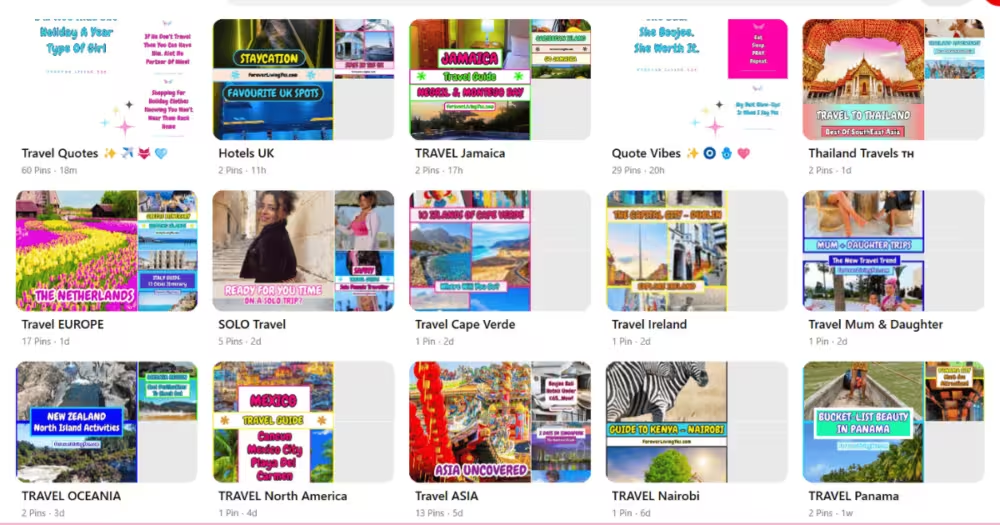
A screenshot of Forever Living Yes Pinterest. 4 weeks’ work from an 8-month challenge
Productivity Over Perfection & Taking It Step-By-Step
The next reflection is productivity over perfection and taking it step-by-step. I spent two years on my website before it went live. I wanted to be perfect and showcase something amazing. However, in a way, this actually damaged my productivity, as I focused repeatedly on the same blogs, perfecting everything, changing everything, and spending a lot of time doing so.
Now, some might say that is pride in your work, and it sure is. It’s a great trait but also an annoying one. If I had launched even a year earlier, that would have been a year of growth, traffic, and community-building. Experts even recommend occasionally refreshing/updating your content, as it helps with SEO. So this would have been an advantage, but my perfection damaged my productivity.
As mentioned, I studied heavily at the beginning of my journey. That study still happens, but it’s step-by-step, meaning I learn on the go. Whenever I come across a blog, course, or video that seems like it could benefit me, I save the link on a document. Whenever I need a break from my website or life, I randomly open one of the links and learn.
Although great blogging resources exist, there’s no exact step-by-step guide to your journey. The road to success is personal and unique, with many bumps, wrong turns, and achievements. Learning is part of the process; try not to overwhelm yourself with things because you think you must know it all right now. Moderation is key.
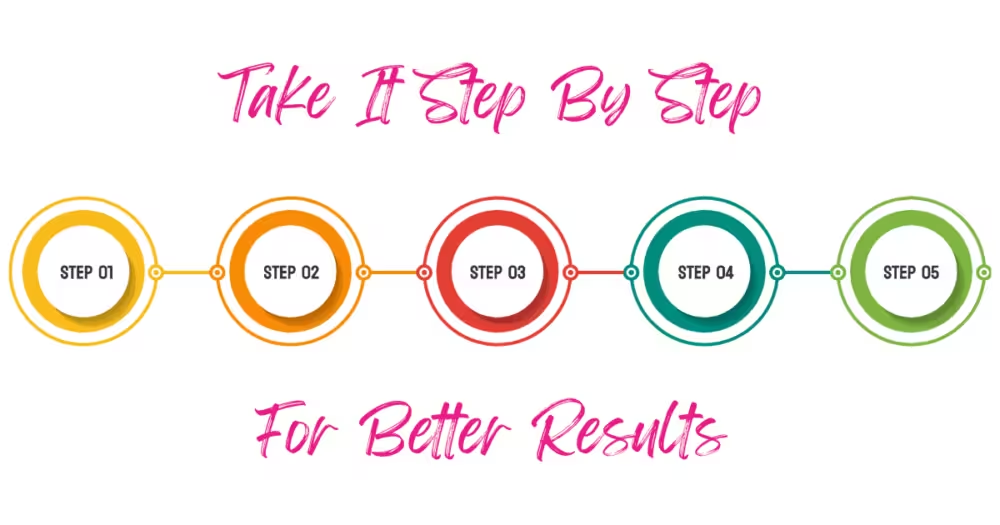
You have to learn to walk before you can run. Step-by-step is a better way to win!
The Investment & Commitment
All businesses need to invest financially, emotionally, physically, and mentally. The biggest investment will be your time. I spend most of my days learning and improving my website and skills because I have a massive goal beyond the website.
You want to work smarter, not harder, so having these tools and tips will help you do that. Another great way to save your time is by outsourcing resources. Hiring people for a small cost on sites like Fiverr can drastically cut your workload. This could include social media management, creative designs, or having people write your blogs. This makes your life so much easier, as you can focus on other areas.
I always do everything because I want to learn and know every part of my business. I’ve accepted that one day, there will be too many things to put 100% into, and I will have to delegate jobs to people. There’s no right or wrong way. However, it is smarter to delegate jobs if you’re looking to grow more quickly. Like with any business, it’s going to be hard. So, if you are serious about joining the travel blogging world, commit fully to avoid wasting your time.
I wish (or not) I had known how difficult it would be when I started so I would have had a choice as to whether to go for it. On the other hand, would I be in this position today if I had known? I’m not sure I would. But am I glad that I did? 100%!
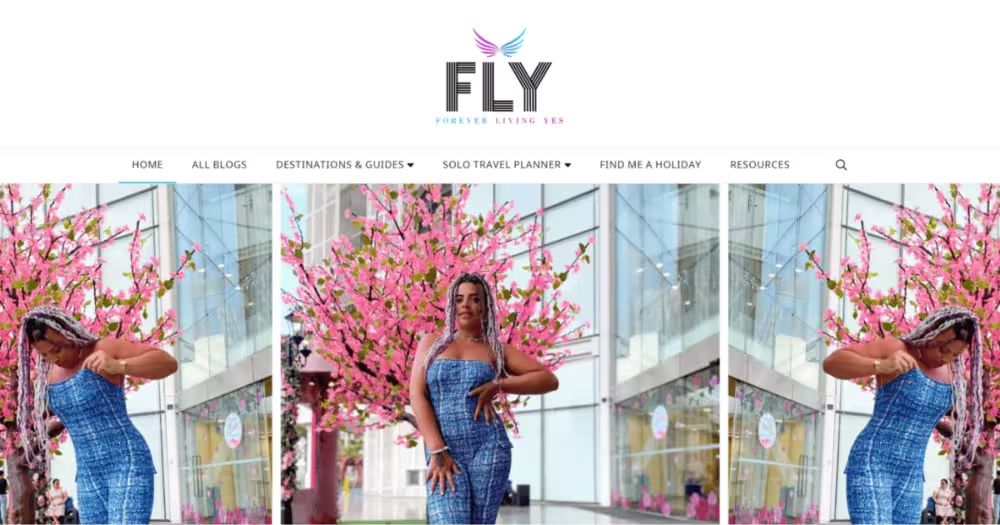
Investing time and dedication will no doubt equal great results
Conclusion
Reflecting on the start of my journey actually brings joy. Although I could have saved time in many ways when I was new to blogging, I’m grateful for the learning curve. I can now share my valuable knowledge with people like you to help you on your journey in the travel blogging industry.
I wanted to include these reflections as I don’t want ya’ll to think it’s an easy road to success. It’s not. It takes a lot, but if you’re in it for the long game and want to invest and commit to something that will set you free in the future, then you’re in the right place. Well done!
Are you a go-getter? For better or for worse? Do you have what it takes to come on this ride? Whether this is just an idea or you’re in the process of starting your travel blogging career, remember that if you put your mind to it, you can succeed. Good luck!
